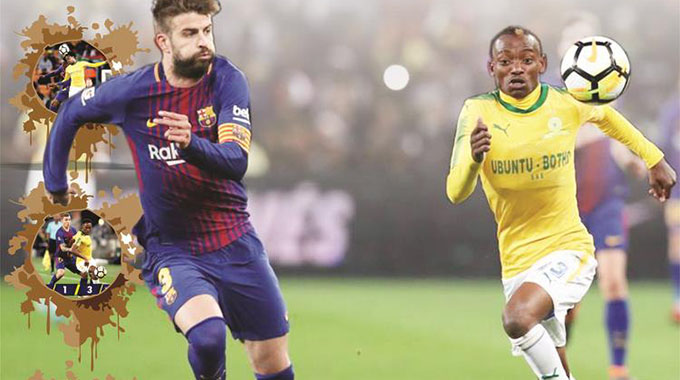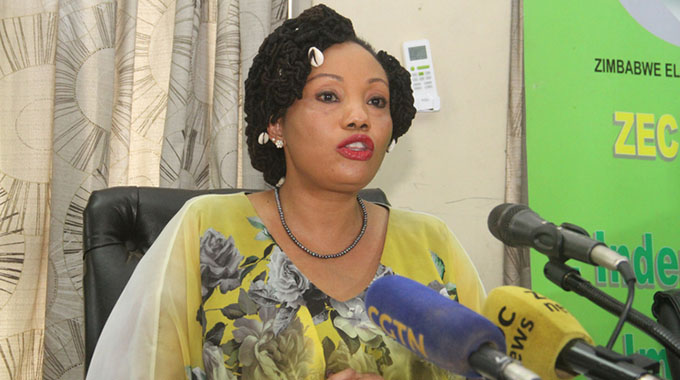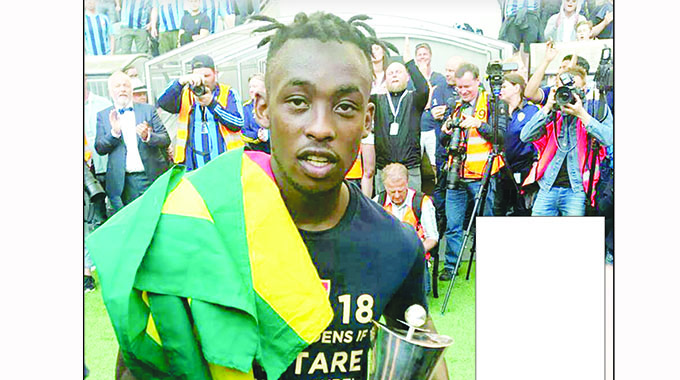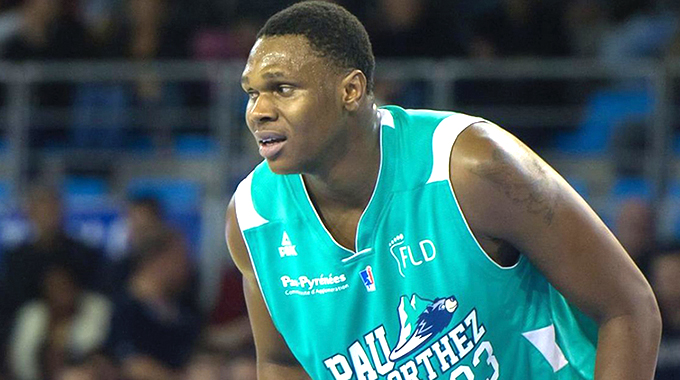NEYMAR WILL SCORE, OF COURSE HE WILL, SCREAMED THE SANGOMA

Sharuko on Saturday
WHEN the first game gets underway in Russia in a few weeks’ time, the world will celebrate the start of another FIFA World Cup finals roadshow where boys will be separated from men and the winners of this grand football festival will be immortalised in gold.
Of course, there will also be usual pantomime villains, with the Three Lions of England one of the favourites to once again fail to live up to expectations at this World Cup.
Sadly, for us, the tournament will also bring back a flood of memories of the humiliation we suffered after being expelled from the qualifiers, without even kicking a ball, for the first time since our readmission into the global football family 38 years ago.
Our bunch of hardworking players, the only ones from Southern Africa to successfully navigate the treacherous waters of qualifying for the last Nations Cup finals in Gabon, being denied a chance to try and go a step better and make it to the World Cup.
Knowledge Musona and his band of fighters paying for the sins of their football leaders who somehow failed to pay a mere $68 000, which was owed to Brazilian coach Valinhos for his short and disappointing stint as coach of our dear Warriors that was as colourless as it was lifeless.
To make matters worse, the football leaders who were in charge back then even conspired to hide their predicament — including successive grim warning letters from FIFA about the dangers of the game they were playing by ignoring the ultimatums — from everyone else, the Government included.
And, when the domestic Premiership bosses finally learnt of this predicament, and paid into the ZIFA coffers the full amount needed to save our World Cup campaign, those who were in charge of the Association decided to use that money to service a debt owed to their leader Cuthbert Dube.
Of course, we might not have ultimately made it to Russia, after all we have never qualified for the World Cup, but who are we to judge where our gallant Warriors would have taken their story, when they didn’t get a chance to fight for this ticket to the Promised Land, in a campaign in which the Zambians came very close to making it?
After all, we proved quite a match for the Senegalese, who are returning to the World Cup for the first time in 16 years, when we battled against them at the 2017 AFCON finals in a group game in which we gave as much as we got before falling 0-2.
And, after all, the World Cup qualifiers are not only for those who make it to the finals, but even some who fall by the wayside, with immense benefits coming from the acquisition of points that matter on the FIFA World Cup rankings while some good players get a chance to be picked by scouts and end up securing dream moves to European leagues.
Then, there is also the priceless benefit that comes with the nation-building which these World Cup qualifiers bring, as we forget our political, tribal, racial or religious differences to come together and unite behind our flag, our country and our team on an adventure that is like no other in this game.
We lost all that, and much more, when our boys didn’t feature in the 2018 World Cup qualifiers, simply because some maniacs-disguised-as-football leaders slept on duty and — as if that wasn’t enough damage — some of them are even making spirited efforts to be parachuted back into power to lead domestic football again.
So, for every African player you will see parading his skills in Russia, in service to his country, just spare a thought for Musona and Billiat and their colleagues, who were never given a chance to have a crack at this grand show because they were failed by some people who fooled them that they would take care of the administrative interests of this game.
THE WORLD CUP, SUPERSTITION AND FOOTBALL’S WEIRD SIDE
It was the great Pele who called football the most beautiful game and nowhere is the game’s enduring beauty more pronounced and better paraded than at the World Cup finals and those who have been lucky to be part of the show, like some of us, will tell you that it’s really a once-in-a-lifetime experience.
In the summer, with the sun and warmer temperatures providing fitting conditions for the spectacle, the convergence of cultures and colours really combine to make the World Cup a show to behold, the greatest sporting event in the world, better than the Olympics by a considerable distance.
And, the relentless pressure that comes with chasing the immortality of winning the World Cup also pushes this beautiful game for a romance with some of the globe’s dark forces, with the Zaire team, who had been crowned champions of Africa in 1974, bringing as many sangomas to their first World Cup show in Germany .
That powerful Congolese side, riding on the talents of the stars of the all-conquering TP Mazembe team which had been crowned African club champions in 1967 and 1968 and were runners-up in 1969 and 1970 while also being semi-finalists in 1972, was quite a formidable outfit.
But, with former Congolese leader, Mobutu Sese Seko having turned that World Cup adventure into something of a personal quest for his country to introduce itself to the world as a powerful nation, a lot of interference in the team’s affairs started.
And this saw them being handed a number of the country’s most powerful sangomas to accompany the team and provide them with the strength the political leadership believed would be required for them to stand the test of the world’s best football nations.
However, after a commendable performance in their first game in which they lost 0-2 to a powerful Scottish team, which was not bad for a side making its debut at the World Cup, everything fell part in the second match when they were hammered 0-9 by Yugoslavia.
Some critics have claimed they conceded a goal for every witchdoctor they brought with them to that World Cup and the Congolese have now and again been reminded about that by an unforgiving global football family.
Football’s relationship with superstition is as old as the game itself and in this country today, the man who is viewed as the ultimate symbol of this weird world, is Dynamos team manager Richard Chihoro who, for some strange reasons, is nicknamed “Nyoka.’’
His official title at the Glamour Boys is team manager, but domestic football has always claimed he does far much more than that and is the club’s link to the sangomas and, when he was unceremoniously dumped from the technical team by Lloyd Mutasa at the end of last season, they claim he cast his spell over the team and DeMbare won only two of their first 10 games.
Even when they powered to a three-goal lead at Rufaro, as was the case against Shabanie, those who believe in Chihoro’s supernatural powers say he found a way to punish these Glamour Boys, for daring to treat him as an outcast, by ensuring they would concede three goals in the last dozen minutes for the match to end in a bizarre six-goal draw.
Memory Mucherahowa, who was the Dynamos captain for the better part of the ‘90s, even dedicates a chapter in his autobiography to the weird things they used to do, under instructions from the juju men, during their playing days.
When the club’s leadership dumped Mutasa while also bringing back Chihoro into the technical team, the first thing he did was to demand he takes custody of the club’s kit which some say gives him the freedom to wash and spray it with his magical stuff and help the players punch above their weight while also weakening the opponents.
And, as if on cue, his comeback game saw Dynamos find a way to win again, beating a resilient Bulawayo Chiefs at Barbourfields, and those who believe Chihoro is an expert in these supernatural battles were left convinced they were right after all.
IT’S NOT AN AFRICAN THING BY ANY MEANS
There are some who dismiss these beliefs in the supernatural, when it comes to football, as being an obscure and primitive African thing and they rightly ask, if this juju really work and these juju men have real power, why is it that not even one country from this continent has ever been crowned World Cup champions.
If we have masters of this dark art on the continent, and if this use of juju really works in making a difference in football, why hasn’t Africa produced even a country that has reached the semi-finals of the World Cup?
And, if these juju men really have the potency to change things, where were they when all we needed was for Asamoah Gyan to convert a last-gasp penalty for Ghana to beat Uruguay and make 2010 World Cup semi-finals in a defining moment for African football?
But those who think this is just an African thing are wrong because in 2011, former England and Manchester United rightback, Gary Neville, revealed in his autobiography that Glenn Hoddle, the former national team coach, used to employ some unorthodox ways of preparing for matches, including visits to Eileen Drewery, an English faith healer.
“He also believed in alternative methods, including Eileen Drewery, the faith healer, who visited the camp a few times before the World Cup,’’ revealed Neville.
“As a bit of a sceptic, I’d never gone to see her. It was different from anything we’d done at United, but all above board, I’m sure. Before the game, Glenn did his usual pre-match routine of moving around the players, shaking their hands and touching them just over the heart. We’ll never know if the methods had any positive effect.
“One of the masseurs told me Glenn had asked the staff to walk around the pitch anti-clockwise during the game against Argentina to create positive energy. Sadly, it didn’t do us much good.”
Brazil dumped their white jerseys, which had blue collars, after they fell 1-2 to Uruguay in the final match of the 1950 World Cup final, where all they needed was a draw, in their Maracana Stadium, before 199 854 fans, to be confirmed champions in a tournament decided on a round-robin basis.
They call it the Maracanazo and everything appeared set for a Brazil win that the then FIFA president had even prepared a speech, on the eve of the match, to salute the Brazilians for being World Champions, gold medals for every player had been prepared and newspapers had published early editions hailing them as champions of the world.
Everything pointed to a Brazilian victory — they had mauled Sweden 7-1 in their first match in the final round-robin phase, thrashed Spain 6-1 while Uruguay had struggled to come from 1-2 down to force a draw against the Spaniards and edged the Swedes 3-2, with the winning goal coming five minutes from time.
A year earlier, Brazil had thrashed Uruguay 5-1 in the Copa America in which the Samba Boys scored 46 goals in just eight matches, hammering Ecuador 9-1, Bolivia 10-1 and runners-up Paraguay 7-0 on their way to victory.
And, when striker Friaca fired them into the lead in the final match against Uruguay, the deal seemed complete in a game they needed only a draw to be champions, but Juan Alberto Villano gave Uruguay some hope in the 66th minute with an equaliser.
Then, with 11 minutes before the end, as if every remaining minute represented every Brazilian on the pitch that day, Uruguay forward Alcides Ghiggia scored the second goal which ultimately won his country the game and the World Cup that afternoon.
Somehow, and this will probably delight those who believe in the supernatural when it comes to football, Ghiggia was the last of the players who took part in that match to die, at the age of 88.
And, his death in 2015 — as if some mythical powers had been running the script of his life — came on July 16, the very day his winning goal silenced the Maracana in that final World Cup match in 1950.
The irony of the Maracanazo is that the player who took most of the blame for Brazil’s defeat that day, goalkeeper Barbosa Nascimento, who became a symbol of national shame throughout the remainder of his life, he even died penniless, shared the same surname as the superstar who, just eight years later, would deliver the World Cup for Brazil.
Edson Arantes do Nascimento, simply known as Pele, was the genius whose arrival on the World Cup scene as a 17-year-old in Sweden, just eight years after the Maracanazo, proved a game-changer for Brazil who went on to win three World Cup titles in a space of just a dozen years.
NEYMAR WILL SCORE, OF COURSE HE WILL, SCREAMED THE SANGOMA
When Brazil started the 2016 Olympics poorly with two goalless draws against Iraq and South Africa, they faced the prospects of a humiliating group stage exit from a tournament they were hosting needing to beat Denmark in the final game to make the quarter-finals.
The country’s football leaders chose an unorthodox solution by turning to some traditional leaders, led by a man called Helio Sillman, who invoked the spirits of Afro-Brazilian ancestors known as Candomble, Umbanda and Mucumba.
Sillman had his Neymar doll, which he sprinkled with magical powers to free the Brazilian star to start performing, and even called a press conference to demonstrate his magical strength.
“This is Neymar, he runs, he dribbles, he scores goals,’’ Sillman thundered with both arrogance and confidence adding, “Neymar will recover his sporting and group leader spirit.’’
He also said three other players, Gabriel Jesus, Marquinhos and Luan, had also been empowered by the spirits to start scoring.
And, in the next match against Denmark, Jesus scored a hattrick while Luan got the other goal in a 4-0 demolition of the Danes which powered Brazil into the quarter-finals where Neymar and Luan scored in a 2-0 win over Colombia for them to book a place in the semi-finals where they met Honduras.
Neymar scored twice in that semi-final, Jesus also grabbed a brace while Luan and Marquinhos got a goal each in the 6-0 thrashing of Honduras at the Maracana and Brazil were through to the final for a date against Germany where, again, Neymar scored in the game which ended 1-1 after extra-time.
In the ensuing penalty shootout, Luan and Marquinhos converted their spot kicks while Neymar scored the winning penalty as Brazil scored all their five penalties to win 5-4 and take the gold medal.
Ivorian international Cheikh Tiote revealed in 2011 he had to use the help of a witchdoctor to help him secure a move to Newcastle and, six years after his revelation, he was dead, at the age of 31, after collapsing while training with his teammates at his Chinese club.
Today, Jose Mourinho leads his Manchester United team into the FA Cup final against Chelsea at Wembley and a Kenyan witch doctor, Mzee Makthub, has been claiming he is the power behind that success leading the Portuguese gaffer to threaten to sue the juju man.
Football — bloody, beautiful and weird — what a magical game!
To God Be The Glory
Come on Warriors!!!!!!!!!!!!!!!!!!!!!!!!!
Khamaldinhooooooooooooooooo!
Text Feedback — 0772545199, WhatsApp Messenger — 0772545199. Email — [email protected], Skype — sharuko58
Chat with me on Facebook, follow me on Twitter @Chakariboy, read my material in The Southern Times or on www.sportszone.co.zw. You can also interact with me on the informative ZBC weekly television football magazine programme, Game Plan, where I join the legendary Charles “CNN” Mabika and producer Craig “Master Craig’’ Katsande every Wednesday night at 21.30pm.









Comments